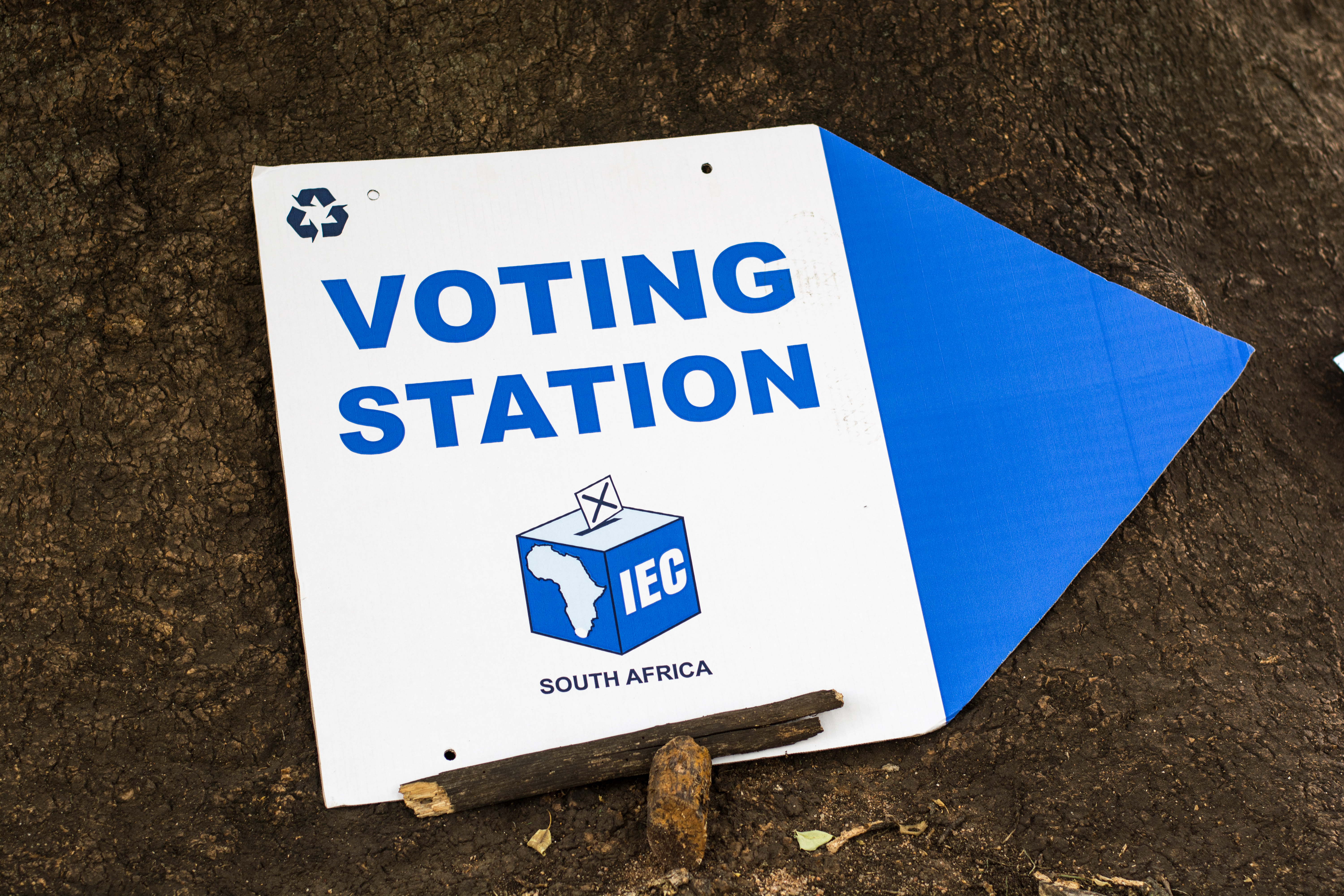Elections 2024
New dawn for South Africa

Johannesburg, South Africa: Voting Station sign for the South African National Elections
© ShutterstockSouth Africa's Historic Election Results Signal New Era
Last week South Africans went out in their numbers to cast their votes. Out of the more than 27 million registered voters, over 16 million participated, seeking change. This led to the African National Congress (ANC), Africa's oldest liberation movement and the party of Nelson Mandela, losing its majority for the first time in 30 years. This historic shift means the ANC is no longer the dominant force in terms of parliamentary seats, compelling all parties to engage in coalition talks—a first for South Africa at national level. Parties now have 14 days to negotiate before a new president and speaker of the National Assembly must be elected.
Although most South Africans voted for change, the country did however have the lowest voter turnout in the history of its democratic history, and continues to face the challenge of voter apathy, especially among young people who feel disillusioned with the political system, and democracy as a whole.
Engaging with the ANC on the outcome, its Deputy Secretary General Nomvula Mokonyane told the Friedrich Naumann Foundation for Freedom (FNF) that they are open to coalition talks with any party that adhere to their principles, including respect for the constitution and rule of law. “We are not sad that we lost our majority. In fact, we believe this is the maturity of our democracy. In terms of coalitions, the ANC will sit down and discuss. However, we will work with anyone who shares in our values,” she said.
Speaking to the official opposition, the Democratic Alliance (DA), leader John Steenhuisen expressed excitement over the ANC’s failure to secure a majority, calling it a victory for democracy. Steenhuisen emphasised the DA’s commitment to liberal values and the importance of job creation, safety, and fighting inequality. “I want to bring liberal values into government to ensure we have a government that work, one where the economy grows, where we can create jobs for our people and lift people out of poverty, narrow inequality and ensure empowerment for more South Africans,” he said.
Helen Zille, the federal chairperson of the DA, highlighted the significance of the ANC falling below 50%, predicting it will never surpass that threshold again. However, she cautioned against the rise of populist parties, which she believes threaten liberal democracy. Former President Jacob Zuma recently established the uMkhonto weSizwe (MK) party, which emerged as the third-largest party, surpassing the Economic Freedom Fighters (EFF). The MK party’s controversial policies, including nationalisation of banks and land expropriation without compensation, have been criticised by the DA. Zille and Steenhuisen warned against these policies and a potential coalition involving the ANC, EFF, and MK, which they termed a “doomsday coalition.” "Parties like the MK received votes on ethnic identity and not track record of government. The more we have ethnic identity votes in a plural society like South Africa, the more dangerous it is for liberal democracy,” Zille said.
Post-Election Dynamics in South Africa: Coalition Negotiations and Controversies
Following the IEC’s announcement of the results on Sunday, June 2, political parties have 14 days to negotiate coalition agreements. However, Jacob Zuma raised concerns about the outcome, alleging that the results were rigged in favour of the ANC and threatening unrest if his concerns are ignored. The IEC refuted these claims, affirming the elections were free and fair. “The results management system that we used is one that was created in house. This system had specific compliance to our electoral procedures, especially the electoral act. We also had auditors, and in fact parties could also bring auditors to certify that the system works,” the IEC’s Chief Electoral Commissioner, Mosotho Moepya said.
President Cyril Ramaphosa accepted the results, despite the ANC’s loss, and urged political leaders to work together for the nation’s benefit. He emphasised that the democratic process must be respected and that the election results reflect the will of the people. “The people shall govern, and the people have spoken. Now it is time for us as politicians to hold hands, find common ground, to put aside our differences and to work together for the betterment of all our people,” he said.
The IEC’s chief electoral commissioner echoed these sentiments, highlighting the efforts to ensure a transparent election process, validated by positive reviews from both international and domestic observers. As coalition talks progress, the future leadership of South Africa remains uncertain. However, the ANC, despite losing its majority, remains a significant player and will likely influence the formation of the next government.
Engaging with South Africans and liberals on the future of coalitions in the country, it seems like most are in favour of a coalition with the DA and ANC, to avoid radical policies such as those of the EFF and MK, in the best interest of the people.
A breakdown of the Parliamentary Seats can be viewed here via our media partner, the Daily Maverick: Elections Dashboard (dailymaverick.co.za)
